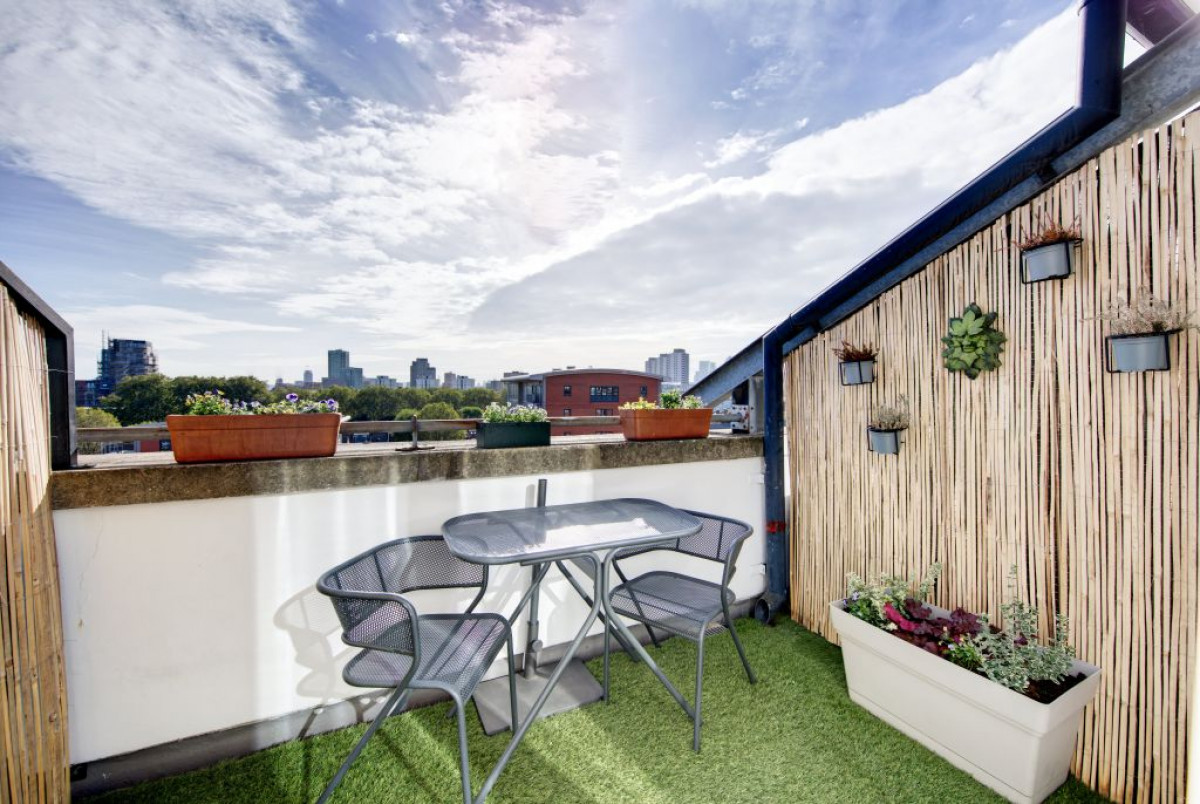A Homebuyer's Checklist: 10 Essential Questions To Ask

Buying a home is one of the biggest financial decisions most people will ever make. While it's exciting to find your dream property, it's critically important not to get swept away in the moment.
Asking the right questions upfront enables you to make a well-informed decision and avoid nasty surprises down the road that could turn your dream home into a nightmare.
Taking the time to do your due diligence by looking up any essential terms and getting detailed answers on all aspects of the property will empower you to proceed. Doing upfront research will also set the stage for a smooth home buying process and long-term satisfaction. The key is knowing which questions to ask.
Question 1: What are the operating costs?
One of the first things you should ask about is the true ongoing operating costs for the property. This includes specifics like the council tax band and annual bill amount, utility bills for gas, electricity, water, internet, etc., as well as any other regular fees like building or homeowners association dues.
The sellers or estate agents should be able to provide detailed estimates. Make sure to ask for actual figures based on the current owners' usage rather than vague approximations. Understanding the full recurring costs is essential for accurately calculating your new budget. You want to avoid underestimating and being blindsided by higher than expected bills down the road.
Question 2: Are there planned developments nearby?
It is important to ask the sellers and local planning department if they are aware of any major developments proposed for the nearby area - things like new roads, shopping centres, apartment blocks or office buildings.
While a new neighbourhood amenity can sometimes increase a property's appeal, large developments can also impact the noise levels, views, and character of an area. If big changes are on the horizon, it could influence your decision or at least the price you're willing to offer. You want to avoid overpaying for a property right before major construction starts next door.
Question 3: Are there any major repairs needed?
While superficial cosmetic issues are expected in most resale homes, you want to know if there are any major repairs or replacements needed, especially regarding critical systems like the roof, plumbing, electrics, heating, or foundation. Ask the sellers directly if they are aware of any underlying defects, chronic issues, or required upgrades. If possible, have a licensed inspector conduct a thorough evaluation.
Understanding any urgent fixes needed, like replacing a leaky roof or faulty wiring, is crucial for budgeting renovation costs and factoring necessary work into your offer price point. This upfront insight helps avoid unwelcome surprises post purchase.
Question 4: What are the neighbours like?
More than just location, neighbours can significantly impact your living experience. Try to find out what types of residents live nearby - young families, professionals, retirees? Are they friendly and considerate or more reclusive? Visit at different times to observe normal activity and noise levels.
Also ask the sellers if there are any known issues with particular neighbours. Understanding the overall neighbourhood dynamic and knowing what to expect will help avoid conflicts or frustrations down the road. You want to make sure the area fits your lifestyle.
Question 5: What items are included in the sale?
It is important to find out exactly what is included versus excluded in the sale. Ask the sellers to clearly specify what fixtures, fittings, appliances, furnishings and other items will convey with the home. For example, is the garden shed, curtains, refrigerator, chandelier included?
Double check that items you expect are not excluded without your knowledge. Also ask about any leases, warranties, or service contracts that transfer automatically at sale. Knowing what conveys and having those details included in the contract ensures no last minute surprises or negotiations arise regarding the inclusions once you are ready to close.
Question 6: What renovations are permitted?
If you are planning any renovations or additions, be sure to ask about any restrictions, permit requirements, and costs for potential projects prior to purchasing. Know what changes or expansions are possible - and permissible - for the property before getting your heart set on an extension, attic conversion, or other major upgrades.
Quiz the sellers on challenges they faced when doing renovations. Check with the local planning department exactly what permitted development rights apply, or other necessary approvals that are required. It's important to do your homework upfront, not only on what improvements will add further value to your new investment, but also what is legally and feasibly possible to enable you to create the home you envision making there. This will then guide your offer price and future remodelling plans.
Question 7: Are the utilities up to date?
Outdated electrical, plumbing, heating, air conditioning or other systems and appliances can be an unpleasant and costly surprise for homeowners. Ask the sellers directly about the age and condition of all utilities and request documentation of any recent upgrades or replacements. If multiple systems seem dated, consider having professionals inspect them and provide cost estimates for potential repairs or replacements you may face soon after moving in.
Having to immediately replace the decades old furnace or rewire the entire home can quickly eat into your budget. Factor any essential upgrades into negotiations.
Question 8: What's the parking situation?
Fully understand the parking rules and restrictions in the area before purchasing. Ask about allocated spots, shared/public parking availability, permits, easements, no parking zones, and costs if applicable. Drive by at night and on weekends to see if space is tighter at certain times. If parking is limited, it will impact not just you but visitors too.
Clarify garage or driveway use rights if shared. Confirm the sellers aren't planning to remove any existing parking spots. Knowing what to expect regarding parking availability will help avoid headaches down the line, especially in congested areas.
Question 9: Have there been any flooding or subsidence issues?
Specifically ask the sellers to disclose any previous or current flooding, drainage, leakage, or subsidence issues on the property. Look closely for any signs of water damage inside and out. Request details on insurance claims related to the home.
Check official flood plain maps for the area. Hire a qualified home inspector to thoroughly evaluate the foundation and look for indications of sinking, shifting, or cracking. Being aware of vulnerabilities will help you take preventative measures. Undisclosed defects could mean expensive repairs or even make the property uninsurable down the road.
Question 10: Why are the current owners selling?
It is always good to ask the sellers straightforwardly why they have decided to sell at this particular time. Listen closely for telling phrasing or hints that could signal issues prompting their move.
Are they candid or evasive? Ask follow up questions if a reason raises red flags and do your due diligence to investigate further. For example, if they disclose recent plumbing problems, be sure to get specifics about the extent, repairs done, and potential ongoing impacts. Their motivation for selling can provide invaluable insight to guide your purchasing decision.
Making one of the biggest financial decisions of your life can feel overwhelming, but asking the right questions upfront provides critical knowledge and empowers you to proceed confidently. While it takes diligence and discipline to request detailed information rather than just looking at your dream homes, a few hours spent investigating now can pay major dividends through decades of happy homeownership.
Do your homework, get answers, and ensure that sellers earn your business. Staying focused on key questions will help you make a well-informed decision and find a home that checks all the boxes both now and years into the future.
Image is from a stunning top floor triplex apartment London E3 available Nov 2023. For the full listing, please click here.

When Property Offers Fall Through: A Guide for Sellers and Buyers
25.06.2025One of the biggest worries for anyone buying or selling a home is the possibility of the deal falling through. And it's a valid concern - nearly 29% of property sales in the UK didn't make it to completion in 2024. Whether due to cold feet, poor survey results, or mortgage issues, it's more common than most people think.

The Best Building Survey if You're Buying an Older Property
05.06.2025Buying a property is a big decision by anyone's standards, which is why it's important to view one with a practical hat on rather than being ruled by your heart.

Hidden Costs Revealed: What Your Survey Might Uncover
21.07.2024Buying a home is a major financial commitment and for most of us, it's the biggest purchase we'll ever make. Whether this is your first time stepping on the property ladder, you're an existing homeowner or you're investing in a property for commercial purposes, checking things out thoroughly is always essential. One of the most effective tools to assist with this is a property survey but, what might a survey uncover and how will that affect your property purchase?

How to save money when buying a home
05.05.2024So, you're thinking of buying a new home? That's great news! Is it a trendy three-bed terrace in a cul-de-sac? Or do you fancy a penthouse apartment with city views? Whatever the property type, we're sure you're excited about your soon-to-be new home.
.png)
How Long is a Property Chain?
22.04.2024In case you don't know by now, a property chain is when multiple transactions are linked together and need to be completed at the same time for each sale to be successful. However, many buyers and sellers often wonder about the length of a property chain.
.png)
How to Get a Bigger Mortgage
22.04.2024Unfortunately, bagging your dream home can be curtailed by a number of things. Being unable to get a big enough mortgage can be an issue that arises.









